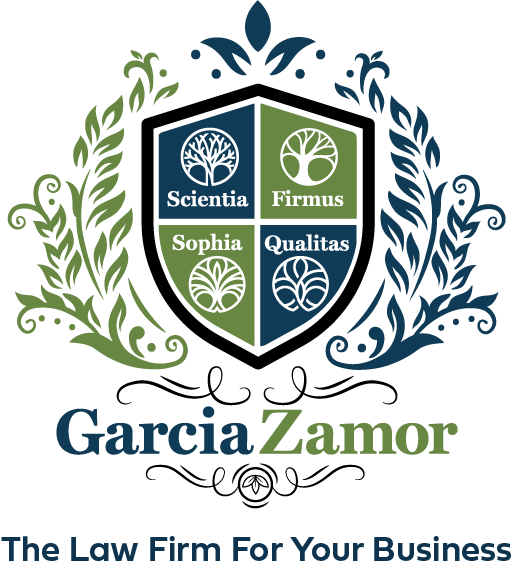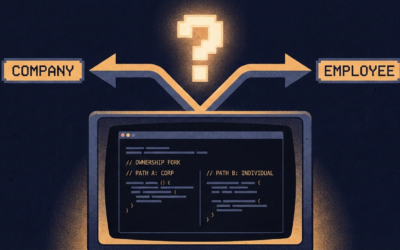A website is one of the greatest tools that you have to market your business or brand, and as such, most businesses, and even many popular bloggers, choose to officially copyright their website content. This means that they have registered a copyright or more than one copyright with the United States Copyright Office for the collective content on their website (as opposed to something with less clear authorship, like its domain name or page layout, which is not eligible for copyright). Some website owners, however, may decide not to formally register with the Copyright Office. Why? Because a common law copyright is actually granted, without any kind of paperwork or registration, the moment that a work is created. The originality of your website — the texts or the photography, for instance — is copyrighted to you, the creator, the moment that it is created by you. However, enforcing a common law copyright, as opposed to a federally registered copyright, has many critical disadvantages. Federally registering that automatic copyright, though, grants you certain legal benefits and protections, including the ability to sue for copyright infringement.
You’ve no doubt seen the familiar copyright symbol (©) or a related phrase denoting a website as a copyrighted entity on the footer of the websites that you visit, usually also including the website’s name or its owner and the years active. While many of these sites will be copyrighted through the Copyright Office, others will be using those words without ever actually being registered. Phrases like “all rights reserved,” for example, are often placed at the bottom of web pages as a way to deter others from stealing the website’s original content. This may be helpful, but if the owner of the content hasn’t registered their copyright, they still aren’t going to be able to sue for copyright infringement and are unlikely to have as much legal success defending their content as someone who has registered their copyright.
If you have your own website, all of this may leave you wondering — should you copyright your website? How does it work? And, if you do copyright it, what exactly is under copyright? It’s also worth noting the difference between a copyright and a trademark, as the two can both relate to your intellectual property on the web.
How Can You Copyright Your Website?
Before you can copyright your website, you must first determine what aspects of your website are copyrightable. The Copyright Office doesn’t consider certain pieces of a website, like its functional design elements, URLS, layouts, or familiar icons, among other similar aspects, to be copyrightable.
When registering for a copyright for a website, you can choose from two different pathways. You can register your original works individually, such as each individual writing piece, if the writing is published, or as a group literary work, if the writing is not published. You can also register a group of photography if you’re wanting to protect a large amount of photography on your website. Each artistic work has its own set of expectations. A copyright attorney can help you understand what is considered a published or unpublished work and how best to copyright that work.
What about the other aspects of your website, like the HTML? This can only be copyrighted if it shows a creativity that is particularly unique to your website.
The other route that you can go when it comes to copyrighting your website is to register it as a collective work or a compilation. To do this, your website must meet certain creative requirements. If it meets those requirements, then you can register your website as a whole work. Understanding these requirements and the best path for your website can be extremely confusing and tricky. That’s why it’s best to contact an intellectual property lawyer to discuss your goals. Once your copyright needs have been determined, then the appropriate application can be filed.
Copyright Vs. Trademark: Which Do You Need?
A copyright is meant to cover works of creativity, such as literature, art, music, film, and related works, including computer programs. A trademark, meanwhile, is what you’ll need to protect your distinctive logo or brand name. This is an area where you’ll want to be careful not to accidentally infringe on someone else’s trademark while selecting and trying to protect your own. Performing a trademark database search is essential before crafting something like a logo for your website. Your intellectual property lawyer will help you with this, as well.
Should You Copyright Your Site?
Choosing to register your website as an authentic work with the United States Copyright Office is an individual and complex choice. If you have a business or you generate income through your website, and if you host content that others may be likely to steal, like original writings or photography, then copyrighting your website could be one of the most important decisions that you’ll ever make. In the unfortunate event that someone were to steal your content, would you file a lawsuit for copyright infringement? If so, copyrighting your website is essential.
It is, however, important to recognize the particular uniqueness of a website. Websites are usually frequently updated, undergoing numerous changes. When you copyright your website, you are only copyrighting that moment in time — the copyright does not extend to those future changes.
Garcia-Zamor can guide you through the process of copyrighting your website. Some clients hire us to audit your brand and intellectual assets. Send us a message or call us today to discuss your copyright needs.







